Video playlists
- Video Number5 Videos
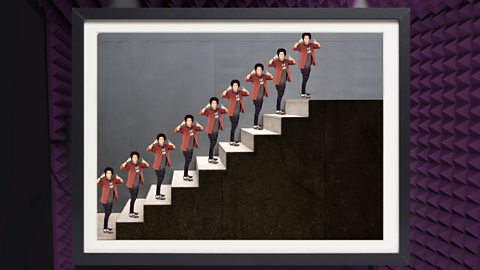
- Video Number5 Videos
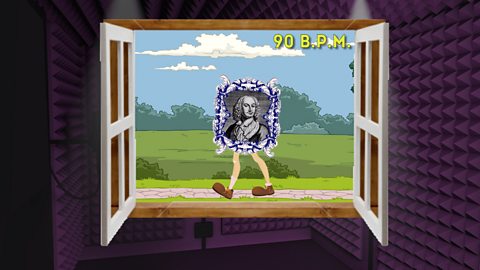
- Video Number3 Videos
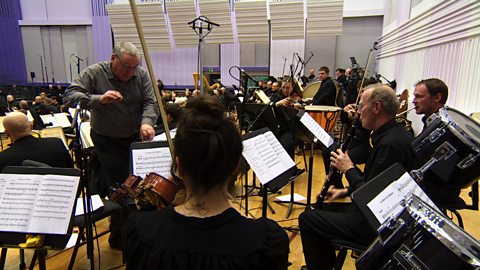
- Video Number4 Videos
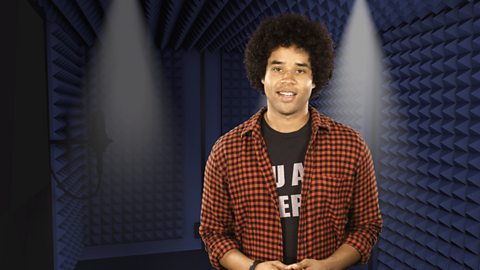
- Video Number5 Videos
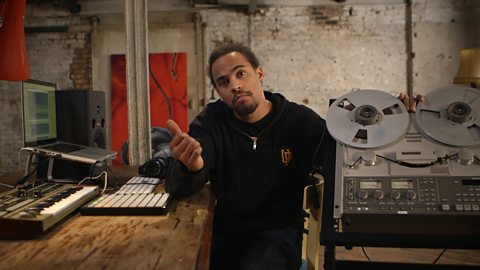
- Video Number5 Videos

- Video Number4 Videos
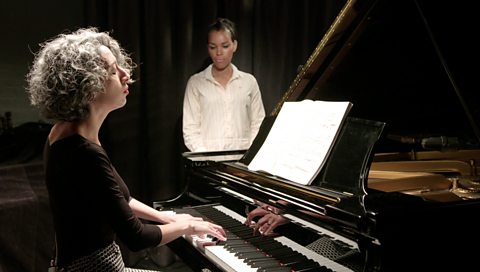
- Video Number2 Videos
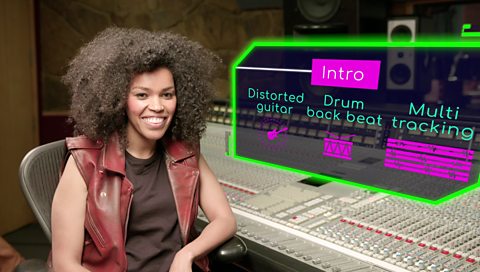
- Video Number2 Videos
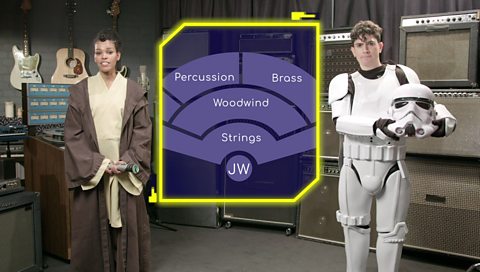
- Video Number3 Videos

Music theory
Melody - Eduqas
A melody is a linear sequence of notes. It is a combination of pitch and rhythm.

Harmony and tonality - Eduqas
Music contains notes in succession (melody) or notes in combination. When notes are played at the same time it is called harmony. The type of harmony created in a piece of music or a song is the tonality of the music.

Structure - Eduqas
Most music is divided into different sections. These can be identified by keys, melodies, lyrics or chord sequences. The different sections form the structure of a piece or song.
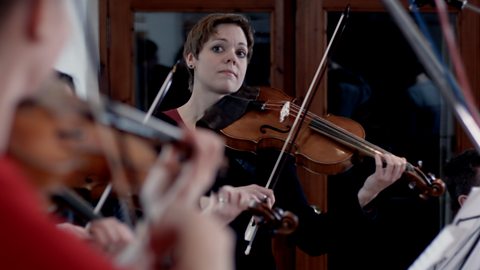
Tempo, metre and rhythm - Eduqas
Tempo, metre and rhythm are vital in all forms of music. Tempo is the underlying beat of the music. Metre is the organisation of rhythms into certain regular patterns. Rhythm is the organisation of particular sounds by their length. Without tempo, metre and rhythm, music would be disorganised and chaotic.
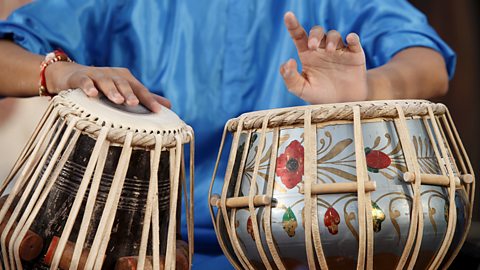
Dynamics and articulation - Eduqas
Dynamics are used to show what volume a piece of music should be played at. Articulation is used to show how to play a note - if it should be short and spikey or smooth.
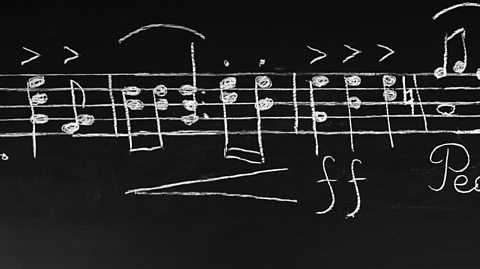
Sonority (Timbre) - Eduqas
Sonority is another word for timbre. The timbre or sonority of an instrument or voice is the colour, character or quality of sound it produces.
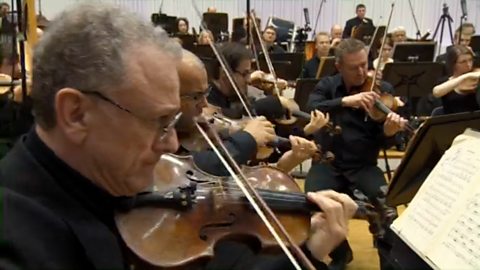
Texture - Eduqas
Some music is written with 'block' chords, some has weaving parts around the tune, and some music has no harmony at all. These are all examples of textures in music.
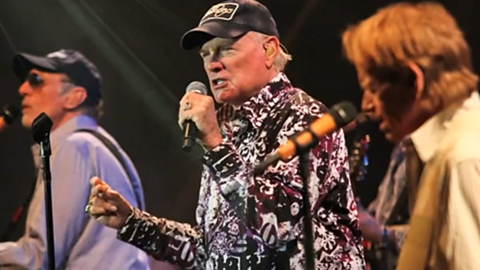
Notation - Eduqas
There are different ways of writing down music - this is called notation. Written music will indicate the type and length of note to be played.
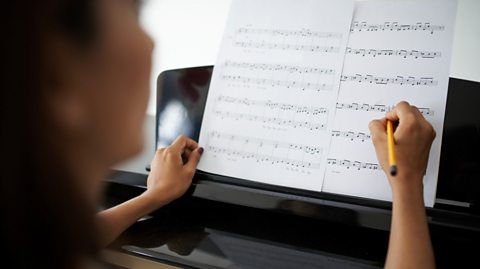
Musical forms and devices
GCSE Music Revision: J.S.Bach - Badinerie - Eduqas
Badinerie, is the last of seven movements from a larger piece called Orchestral Suite No.2 composed by J.S. Bach between 1738 and 1739.
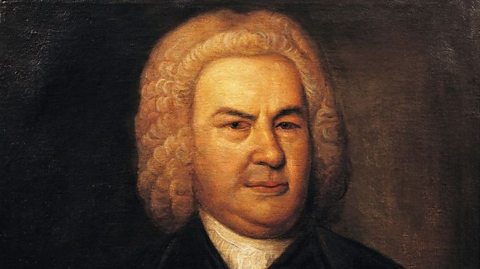
Mozart: Eine Kleine Nachtmusik, third movement - Eduqas
Wolfgang Amadeus Mozart composed Eine Kleine Nachtmusik in 1787 during the Classical period. It has typical music features from this time, including the minuet and trio form.

Bach: Brandenburg Concerto No.5, third movement - Eduqas
J.S. Bach came from a family of successful musicians and was one of the most prominent composers of the Baroque period, writing six concertos for the noblemen of Brandenburg. Bach took on the work in the hope for employment, but the concertos took a lot longer than expected.
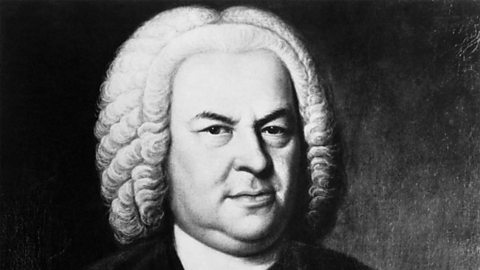
Beethoven: Piano Sonata No.8, first movement - Eduqas
Ludwig van Beethoven and the piano were two of the most exciting new qualities of music in the 18th century and both are showcased in his Sonata Op.13 No.8 in C minor, Path茅tique, first movement.
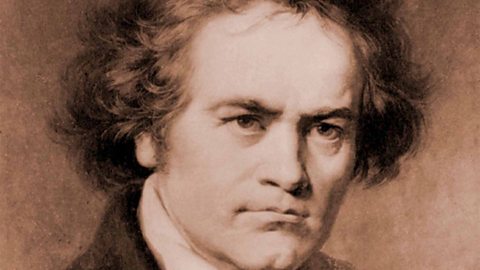
Brahms: Violin Concerto - Eduqas
Johannes Brahms was a composer in the Romantic period. The Violin Concerto in D major was written in 1879 and first performed in Leipzig, Germany. Brahms composed it for his friend, who was a virtuosic violinist.
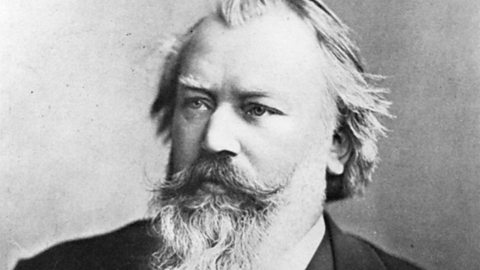
Music for ensemble
Chamber music - Eduqas
During the Classical period, Joseph Haydn composed music for many string quartets. Like his symphonies, they display many features that are integral to Classical era. These were then developed further by composers such as Mozart and Beethoven.
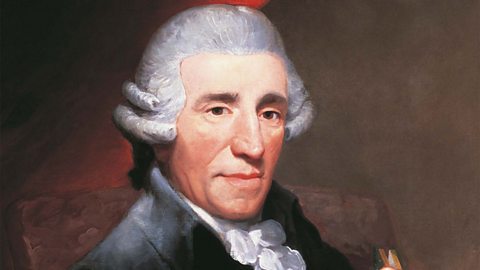
Stephen Schwartz: Defying Gravity from Wicked - Eduqas
Stephen Schwartz composed Defying Gravity for the musical Wicked that opened in 2003. It is a vocal duet between two witches and is one of the biggest songs of the musical, finishing the first act.
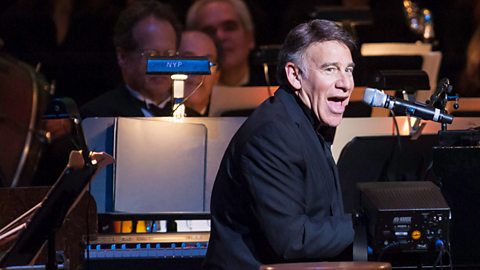
Blues and jazz - Eduqas
Created at the end of the 19th century, blues music is a style of music that is heavily influence by African American history. The original blues music evolved and grew into jazz from the 1920s.
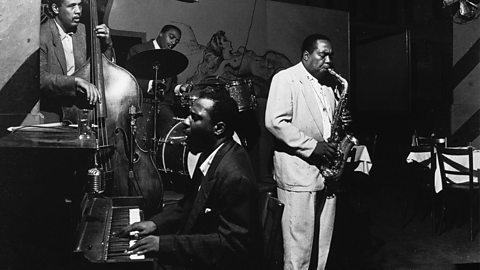
Tim Minchin: Naughty from Matilda - Eduqas
Naughty is a song from the musical Matilda written by Dennis Kelly with music and lyrics by Tim Minchin. The musical is based on Roald Dahl鈥檚 book of the same name as the musical.
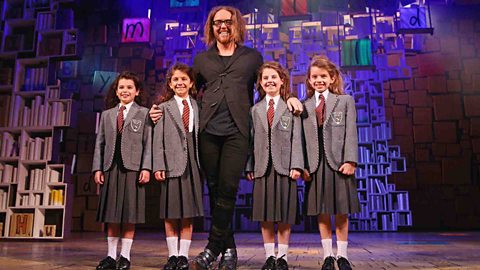
Film music
John Barry: Out of Africa Love Theme - Eduqas
John Barry composed the soundtrack for the Academy Award winning film Out of Africa in 1985. He has also composed music for 11 of the James Bond films including Dr. No.
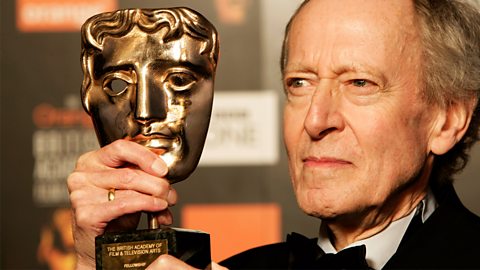
Klaus Badelt and Hans Zimmer: He's a Pirate - Eduqas
Pirates of the Caribbean is a hugely successful film franchise. The score for the first of the film series was written by Hans Zimmer and Klaus Badelt. It begins with the He鈥檚 a Pirate theme.
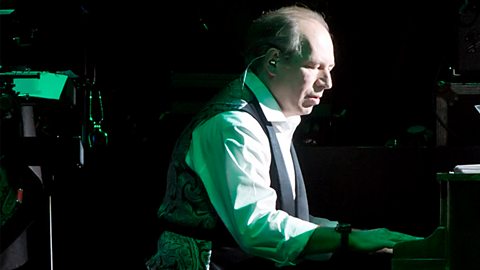
John Williams: Star Wars - Eduqas
John Williams is one of the most successful and sought-after film composers, writing for many blockbuster films and winning many awards. The Star Wars score is one of his most important pieces of work, becoming as iconic as the 1977 film itself.
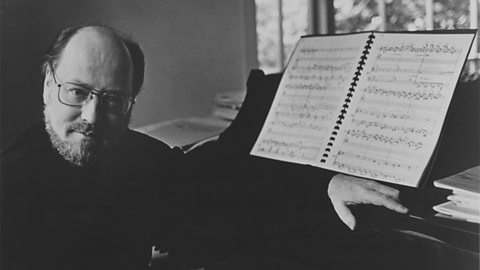
Assassin's Creed - Eduqas
The industry of composing video game music has exploded in the last 30 years. Composers are responsible for creating the atmosphere in the images seen on the screen. Interactive elements of the sound design for a computer game make a huge impact on the immersive quality of computer games.
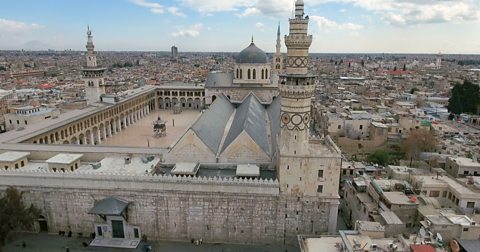
Popular music
GCSE Music Revision: Toto - Africa - AQA
Africa, by the American rock band Toto, is the tenth track on their fourth studio album Toto IV which was released in 1982.
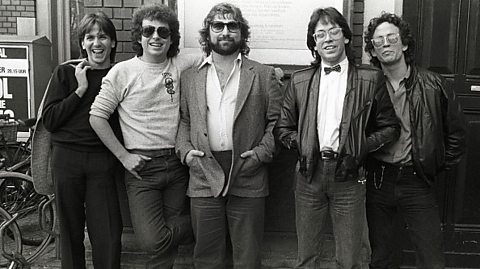
Rainbow: Since You Been Gone - Eduqas
The British rock band Rainbow released a version of Since You Been Gone in 1979. Typical hard rock musical features are heard throughout the song.
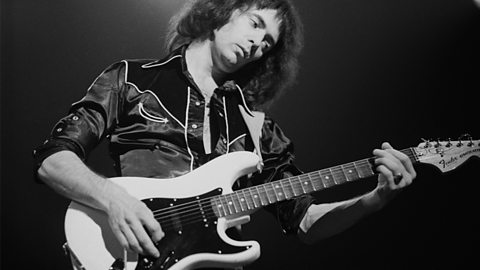
The Beatles: With a Little Help From My Friends - Eduqas
With a Little Help from My Friends is a track taken from the iconic album Sgt. Pepper鈥檚 Lonely Hearts Club Band, which was released in 1967. It is sung by Ringo Starr and follows the opening song, Sgt. Pepper鈥檚 Lonely Hearts Club Band.
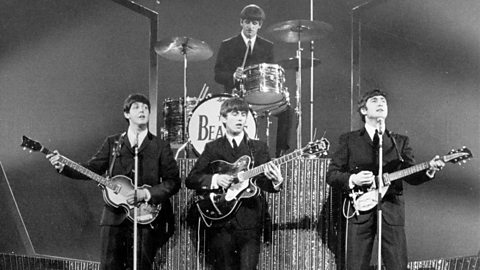
Queen: Killer Queen - Eduqas
Killer Queen is a song by the hugely successful British rock band Queen, released on their third album, Sheer Heart Attack, in 1974.
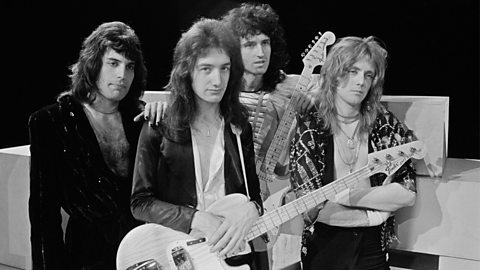
Adele: Someone Like You - Eduqas
Someone Like You was composed by Adele Adkins and Dan Wilson. It featured on Adele's second studio album, 21. The single was a huge success, reaching number 1 in the charts around the world and winning numerous awards.
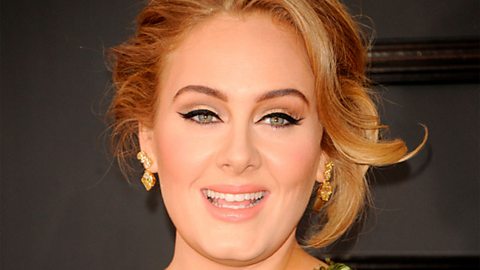
Music technology
Music software - Eduqas
Music software can be used for notation, sequencing and sound recording. Music technology can help you to compose and record your own music.
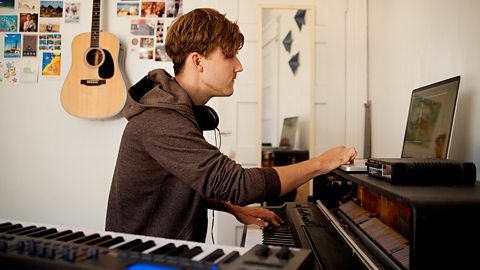
Recording music - Eduqas
Advances in music technology have made it possible for musicians to create their own recording studio. Computer based recording makes it easier to experiment and develop ideas.

Turntablism - Eduqas
Turntablism refers to the skill of DJing. Techniques such as scratching and beat juggling are used for manipulating the decks and mixing tracks.
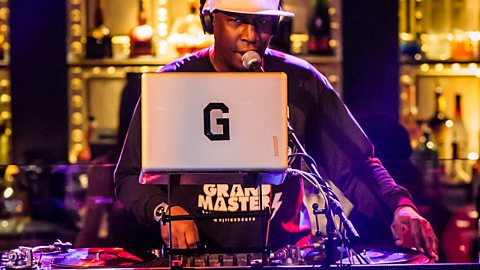
Sampling - Eduqas
DJ and singer-songwriter Moby is a performer from New York. He plays keyboard, guitar, bass guitar and drums. He has written popular dance music tracks which sample music from other songs.
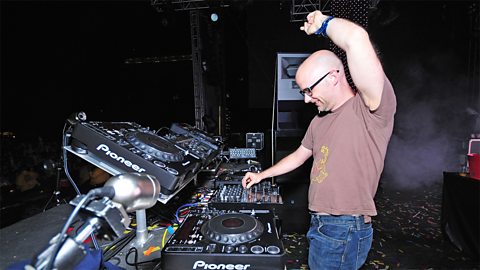
Composing
Writing your own music - Eduqas
In GCSE Music you will be required to compose two pieces. To do this you will need suitable tools. You will also need to find a starting point for your music, and structure, review, evaluate and experiment with your compositions.
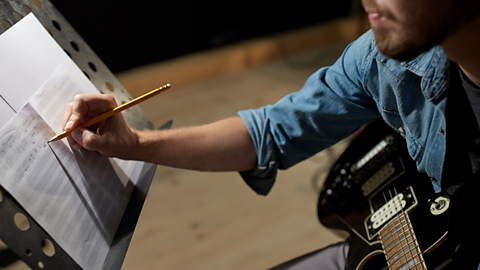
Music software - Eduqas
Music software can be used for notation, sequencing and sound recording. Music technology can help you to compose and record your own music.

Perfoming & evaluating
Musical performance - Eduqas
During a GCSE Music course, students will be expected to undertake a solo and an ensemble performance. As well as the more traditional instrumental performances, students may be allowed to realise a performance using modern music technology.
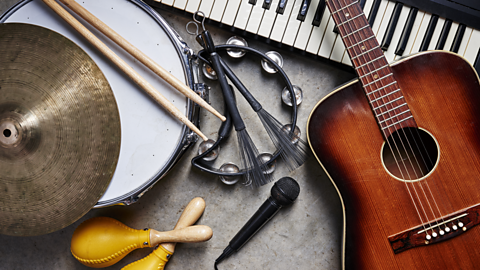
Links
- External linkExternal link
- SubscriptionSubscription
- External linkExternal link
- SubscriptionSubscription
- External linkExternal link
- SubscriptionSubscription